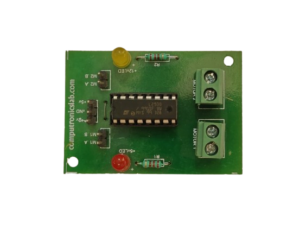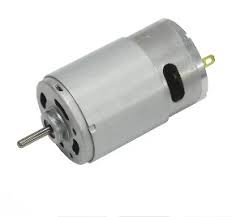Push Switch Tactile 4 Pin (Pack of 5)
93 in stock
A Tactile/ Micro Push Switch is a compact, reliable component used for controlling electronic circuits. With a current rating up to 1A and a voltage rating up to 50VDC, it’s ideal for low-power applications. Commonly used in consumer electronics, DIY projects, and control panels, it ensures consistent and tactile operation.
₹24.01 ₹53.10 (Incl. GST)
93 in stock
Push Switch Tactile 4 Pin
Introduction
A Push Switch Tactile/Micro is a compact and essential component in the electronics industry, providing a user-friendly interface for controlling circuits. Despite its small size, it offers reliable performance and is used in various applications requiring a momentary or latching action.
Specifications
- Current and Voltage Rating
- Current Rating: Typically supports up to 0.5A to 1A, making it suitable for low-power applications.
- Voltage Rating: Usually rated for up to 50VDC.
- These ratings ensure the switch is ideal for small electronic devices and control circuits.
- Switch Type
- Momentary or Latching Action: Available in both momentary (only stays on while pressed) and latching (stays on after pressed) configurations.
- SPST (Single Pole Single Throw): A simple design with one input and one output, ensuring ease of integration into various circuits.
- Mechanical Design
- Actuator: A small button, often made from plastic or rubber, providing a tactile feel and ease of use.
- Mounting Type: Designed for both through-hole and surface mounting on PCBs, offering flexibility in design.
- Contact Material: High-quality conductive materials like gold or silver plating to ensure long-term reliability and performance.
Construction and Design
- Housing
- The switch housing is typically made from durable plastic, ensuring it can withstand regular use and environmental factors.
- Button
- The button is ergonomically designed for ease of use, providing a comfortable and responsive feel. It is often color-coded or marked for easy identification.
- Internal Mechanism
- Inside, the switch contains a reliable spring mechanism that ensures consistent operation and longevity.
Applications
- Consumer Electronics
- Remote Controls: Commonly used in TV remotes and other handheld devices for button inputs.
- Wearable Devices: Ideal for small wearable electronics due to its compact size and reliable operation.
- Industrial Equipment
- Control Panels: Used in compact control panels and instrumentation for activating specific functions.
- Automation Systems: Suitable for manual overrides or emergency stops in automated systems.
- Automotive
- Dashboard Controls: Used for various auxiliary functions in vehicles, such as lighting and accessory controls.
- DIY Projects and Prototyping
- Arduino and Raspberry Pi Projects: Popular in DIY electronics and prototyping for various control inputs.
Advantages
- Ease of Use
- Tactile Feedback: Provides a clear tactile response, ensuring users can feel when the switch has been activated.
- Ergonomic Design: Comfortable to press, reducing user fatigue in repetitive use scenarios.
- Versatility
- Wide Range of Applications: Suitable for numerous applications from consumer electronics to industrial control systems.
- Multiple Configurations: Available in various sizes and configurations to fit different design requirements.
- Reliability
- Durable Construction: Made from high-quality materials to ensure long-lasting performance.
- Consistent Operation: Reliable internal mechanisms ensure the switch operates correctly every time.
Conclusion
The Push Switch Small is a versatile and indispensable component in modern electronics, offering a compact solution for reliable circuit control. Its ease of use, durability, and wide range of applications make it a preferred choice for engineers, hobbyists, and manufacturers alike.





